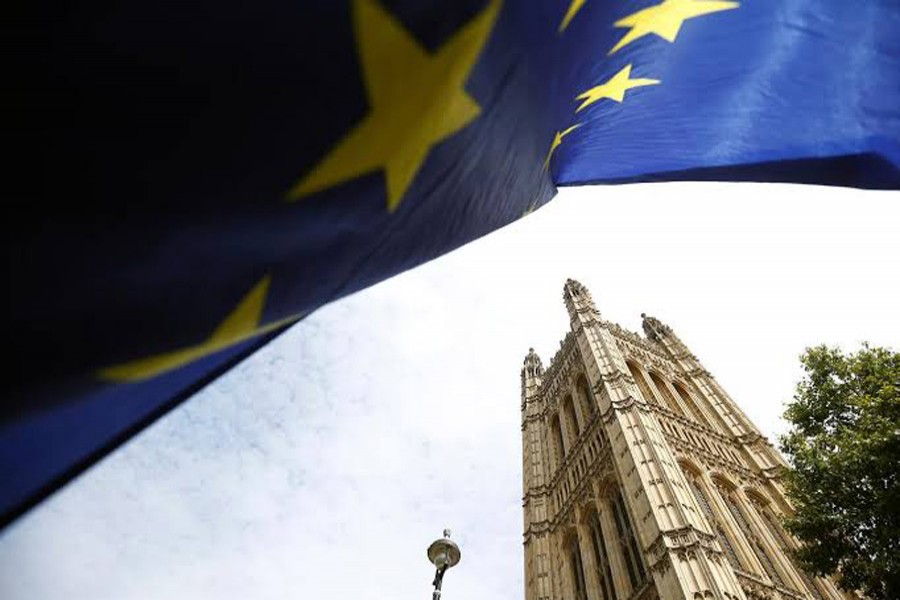
Published :
Updated :

Britain finally put some documents on the table on Thursday to break an impasse in its Brexit talks with the EU, but the bloc is worried that London is banking too much on a meeting of the 28 national leaders next month to get a deal across the line.
Sidestepping technical hurdles that take time to clear and pinning hope on top-level talks is a risky strategy that failed two former British prime ministers, both of whom were forced to quit over their country’s thorny divorce from the bloc.
The leaders of the bloc’s 27 other countries fear that British Prime Minister Boris Johnson, known for his loose attention to detail, will arrive at the October 17-18 summit in a blaze of bravado, calling on them to overlook missing details and seal a more general, political deal.
If they turn him down, they worry, they risk taking the blame themselves for making a damaging no-deal Brexit inevitable.
EU leaders won’t play along with that scenario.
This is because the technical provisions of any deal are important, negotiations over them are entrusted to the EU’s executive Commission and it will need time to work through them to make recommendations for the leaders meeting in mid-October.
“The EU27 has always insisted that these negotiations are not something for the Council (of national leaders),” a senior EU diplomat told Reuters.
“It can’t be solved by the prime minister waving a single piece of paper at the summit. I cannot see what he would say on that date that would miraculously solve the issue at the heart of the backstop problem.”
The EU made clear this week that London’s ideas so far on replacing the Irish “backstop” - an insurance agreement written into a stalled Brexit deal that would prevent the return of border controls between Northern Ireland and EU member Ireland - were far from acceptable.
Britain said on Thursday it had shared “confidential technical non-papers” with the EU, essentially preliminary ideas rather than the formal written legal proposals Brussels wants for an agreement on the terms of the UK’s exit on October 31.
Antti Rinne, the prime minister of Finland, which currently holds the EU’s rotating presidency, said on Wednesday that London had until the end of September to present detailed legal texts of what it wants a new Brexit deal to look like.
“Time is running out,” a French government source said, commenting on a meeting between Rinne and French President Emmanuel Macron. “We won’t be negotiating directly at the European Council in mid-October.”
The EU side worries London may be making the same mistake as those of former British premiers Theresa May and David Cameron grappling with Brexit.
May, Johnson’s immediate predecessor, was rebuffed at an EU summit in Salzburg a year ago when she made a political appeal to the other 27 leaders to back her Brexit matrix, only to have them reject it unanimously.
Before Britain’s 2016 Brexit referendum, then-prime minister David Cameron leant heavily on Germany’s influential chancellor, Angela Merkel, to give Britain a new status within the EU in the hope that she would sway the rest of the bloc. He was bitterly surprised when he secured much less than he had hoped for.
“The Commission leads our negotiations for a reason: they have the technical expertise needed to tackle such issues as the Irish border. You agree stuff with them. The leaders are there to approve or dismiss the deal - not to work it out,” said another EU diplomat involved in the Brexit talks.
The bloc’s insistence on detail and process contrasts with the rhetoric coming from the British side - “It’s time to take risks, show leadership and seize the opportunities ahead,” said one UK government official - and diplomats in Brussels foresee it will end in a crash at next month’s summit.


 For all latest news, follow The Financial Express Google News channel.
For all latest news, follow The Financial Express Google News channel.